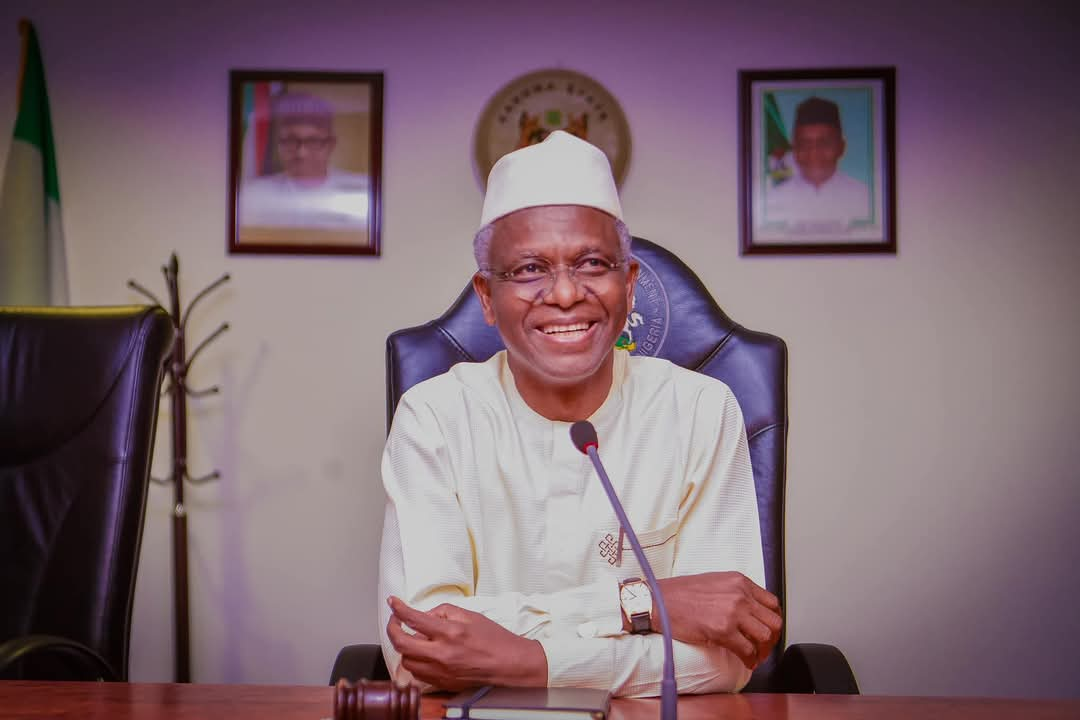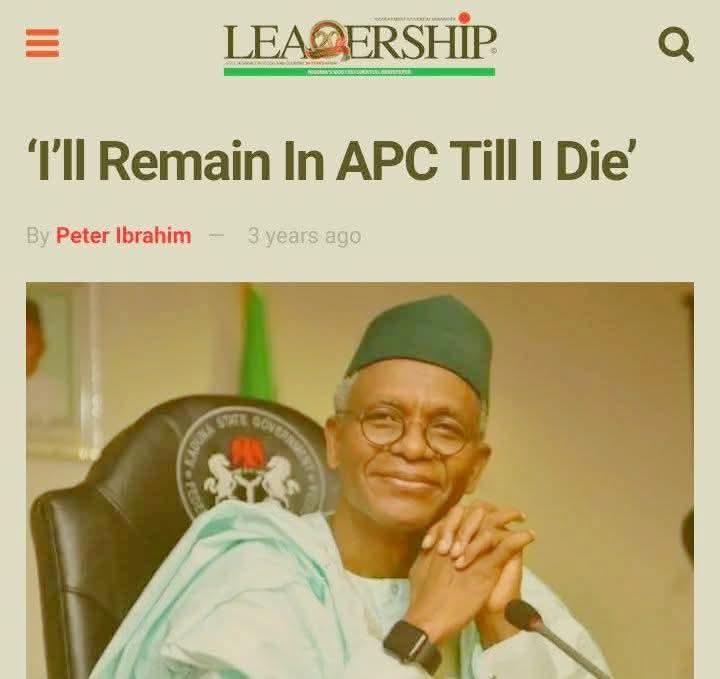El-Rufai’s Defection: A Case Of Political Convenience Over Conviction
TAIWO ABIODUN

Politics should be guided by principles, not personal ambition. Yet, in Nigeria, it has become increasingly evident that many politicians prioritize self-interest over integrity. The recent resignation of former Kaduna State Governor, Nasir El-Rufai, from the All Progressives Congress (APC), followed almost immediately by his defection to the Social Democratic Party (SDP), is a glaring example of this trend.
For years, El-Rufai positioned himself as a politician of conviction—someone who spoke candidly and upheld loyalty to his party. He often criticized political opportunists who jumped from one party to another for convenience, presenting himself as different. However, his abrupt switch to the SDP, despite his numerous public declarations of commitment to the APC, raises serious questions about the sincerity of his past statements.
Defections in Nigerian politics are nothing new, but when they involve leaders who have built reputations on the foundation of ideological consistency, they expose a deep flaw in the political system. If El-Rufai’s departure from APC was based on genuine policy disagreements, one would expect a period of reflection before choosing a new platform. Instead, his near-instant defection to the SDP suggests a move driven by political calculations rather than principles.

This development is a reminder of why public trust in politicians continues to erode. When leaders say one thing and do the exact opposite, it reinforces the perception that Nigerian politics is merely a game of personal interest, where loyalty is temporary, and principles are negotiable. El-Rufai’s move does not just reflect on him as an individual; it symbolizes the broader absence of political morality in the country.
Ultimately, Nigerian democracy can only progress when political leaders are held accountable—not just for financial corruption, but also for ideological inconsistency and deception. Leadership must be built on trust, and trust can only exist when politicians stand by their words. If leaders continue to abandon principles for convenience, then the nation will remain trapped in a cycle of broken promises and disillusioned citizens.










